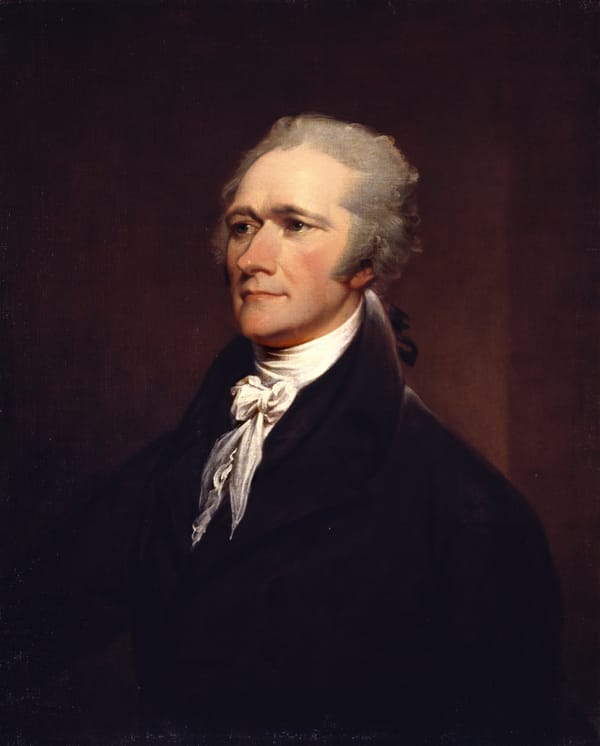How (Not) To Reform the Supreme Court, Part One(b)
My How (Not) To Reform the Supreme Court series got slightly interrupted by my month off from writing here. But yesterday Sen. Ron Wyden (D-OR), one of the good ones, introduced a court reform proposal, and there's one particular feature of it that I wanted to comment on: the requirement of a two-thirds supermajority for the Supreme Court to strike down an Act of Congress.
This is both unconstitutional and a bad idea on the merits. Both of these points are somewhat esoteric, so I want to explain the reasoning behind them.
(As a reminder, you can find Part One of this series here, and an Interlude on Jurisdiction Stripping here.)
As far as I can tell, the complete legislative text of Wyden's proposal on this point is this:
(d) REQUIREMENT TO INVALIDATE ACT OF CONGRESS.— (1) IN GENERAL.—The Supreme Court of the United States may invalidate an Act of Congress only with the concurrence of— (A) at least 2 ⁄3 of the voting justices; and (B) at least a majority of the total number of justices
The full text of the bill is here. The bill would also expand the Court to fifteen Justices, with that expansion happening gradually over time (which is also a terrible idea, if you're gonna expand the Court the point is for all the new Justices to be appointed by a Democrat), so the two-thirds requirement would be ten of fifteen (assuming everyone voted). On the current Court it would only require one more Justice than current practice, since so far as I can tell exactly two-thirds is sufficient.
I think looking at the legislative text kind of illustrates the basic constitutional problem: where exactly does Congress get the power to do this?? The Court's power of constitutional review is not something that Congress conferred upon it; it comes directly for the Constitution. (I will be writing my primer on judicial review soon, if you want to hear the details of this point; for now just take it as a given.) In general, Congress can't rescind a grant of power to one of the other branches that was made by the Constitution; this is elementary stuff!
We can see the same point from another angle by looking at the express powers of Congress. Only two are remotely relevant to the judiciary; one of those is the power to constitute inferior courts, which is not relevant here. The other is, well, the Necessary and Proper Clause:
The Congress shall have Power ... To make all Laws which shall be necessary and proper for carrying into Execution the foregoing Powers, and all other Powers vested by this Constitution in the Government of the United States, or in any Department or Officer thereof.
This is where Congress gets its authority to do things like set the size of the Supreme Court. But, look, changing the voting threshold is simply not at all necessary for carrying the Court's powers into execution. It is instead a barrier to the Court's exercise of its powers, plain and simple. I take a capacious view of the Necessary and Proper Clause, but not that capacious!
What about Congress's power, found not in Article I but Article III, to make "exceptions" to the Court's appellate jurisdiction? This is probably the most common ground on which the measure would be defended, but I don't think that's right at all, and not just because I'm a bit of a jurisdiction-stripping skeptic in general. One of the key conclusions to Henry Hart's famous dialogue on "The Power of Congress to Limit the Jurisdiction of the Federal Courts" (available here) is that, even where Congress has power to withhold jurisdiction from the courts, what it cannot do is confer jurisdiction with strings attached. Jurisdiction, in other words, is an all-or-nothing game: once the court (whether Supreme or inferior) has been authorized to hear the case, it can decide that case according to its own best judgment, and Congress doesn't have a choice in the matter.
When you think this through a little, I think it's obviously correct. There are a couple of reasons for this. The first is just the basic notion of judicial independence. It's hard for me to see a principled distinction between Wyden's proposal and something like "the courts only have jurisdiction to hear cases against the government if they rule in the government's favor," which (I hope) is intuitively problematic.
There's also something deeper: I don't really think it's plausible to interpret anything along these lines as a limit on jurisdiction! What happens if a court lacks jurisdiction is that it issues no order or decree of any kind. Upholding the validity of a federal statute, on the other hand, frequently means that a court will take some sort of action, as for example if the law under review is a criminal law and the case is a criminal prosecution. There, finding the law invalid means dismissing the case; affirming the law on the other hand means holding a trial, and very possibly entering a judgment of conviction that sentences the defendant to prison.
Now, Wyden's proposal is all about appellate courts, but the same issue arises there. Suppose the decision below found the law invalid, and it gets appealed to the Supreme Court. Then let's say that five Justices (out of nine) agree with the lower court that the law is unconstitutional, while four disagree. Wyden's bill, I suppose, would require the Court to reverse the judgment of the lower court? But that's... that's the exercise of jurisdiction! If the Court lacks appellate jurisdiction then the ruling of the lower court has to stand.
I just don't think we can understand this proposal as jurisdictional in nature. And I don't see any other possible ground on which its constitutionality could be defended.
Of course that's only part of the question. In theory we have the ability to amend the Constitution. So even if Wyden's notion of doing this by statute is not legally tenable, if it's a good idea then maybe we should just sweep those concerns aside. It's also important, therefore, to make clear that this is a really terrible idea.
Why? It has to do with the Court's function. As I explained in my Liberal Currents piece a few months back, an underappreciated but absolutely vital function that judicial review serves is maintaining the People's confidence that the government is broadly staying within the limits of its authority. The idea is that, by creating a mechanism for invalid laws to be prevented from going into effect, you increase confidence that the laws remaining in effect are in fact valid. Of course there will always be disagreement about which laws, exactly, are valid, even after the courts have had their say. But so long as people feel that the government has done everything it could reasonably do to observe its own limits, overall faith in the government may endure.
Requiring a supermajority to strike a law down destroys this effect. Picture it: a man is prosecuted under a law which, let's say, is plausibly thought to violate the First Amendment. The case goes up to the Supreme Court, where more justices conclude that it does violate freedom of speech than conclude that it does not. Perhaps that's five to four, perhaps it's nine to six. Either way, the result is that the man is taken off to prison. Is this going to give people confidence that the government is staying within its bounds? Absolutely not! Rather, as my grandfather Charles Black wrote, it would turn "constitutional litigation [into] a device for formally stamping as illegitimate certain governmental actions which were going to be enforced anyway."
Requiring a supermajority to invalidate legislation would substantially cut into the Court's function as a check on the rest of government, but it would eradicate altogether its capacity to legitimate. If like me you see that capacity as an important part of our system of constitutional government, then you should not support this particular piece of Wyden's plan.

